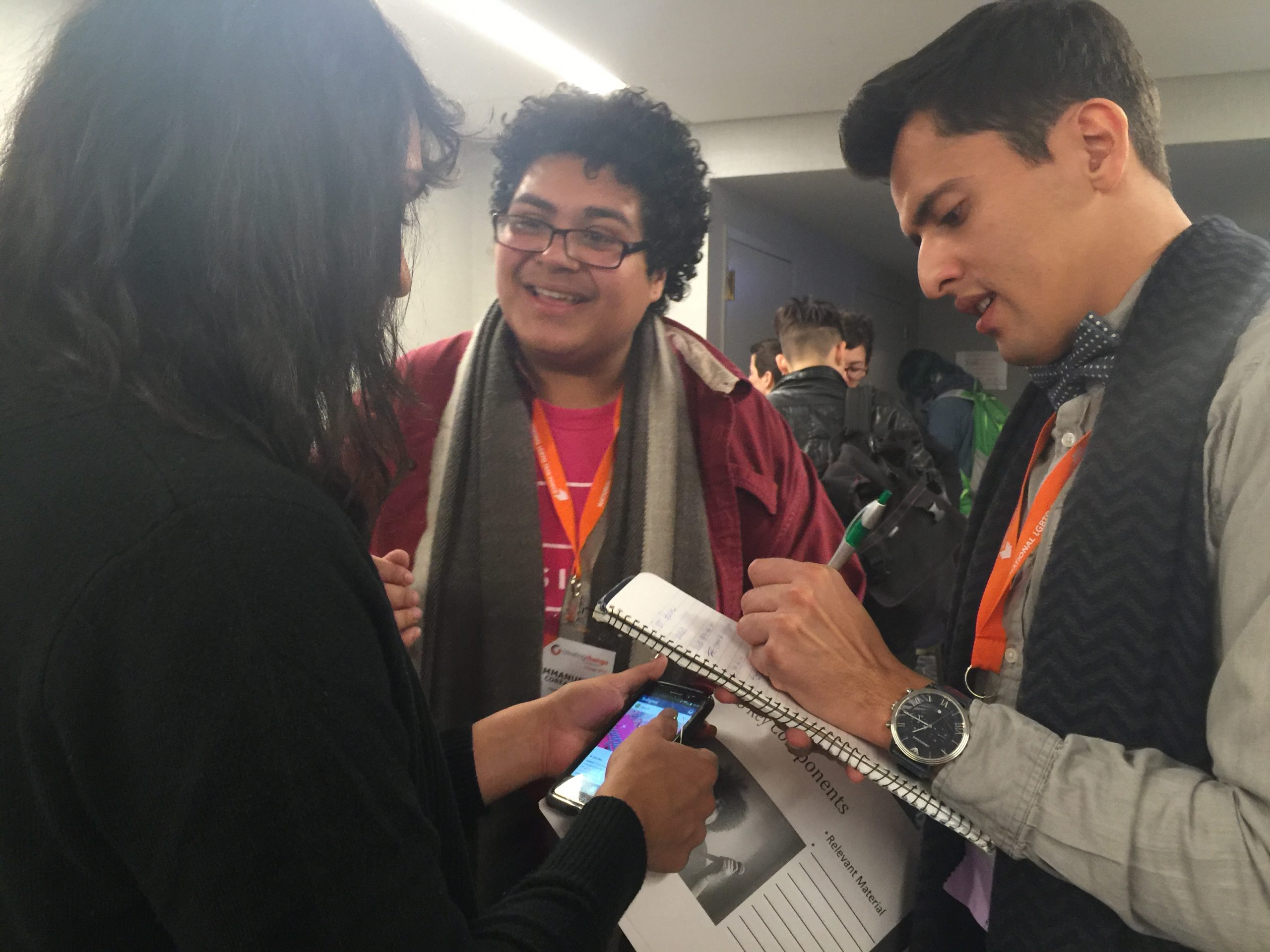Manny Coreano, a youth mentor at GALAEI: A Queer Latin@ Social Justice Organization, emphasized the importance of circles at a workshop he helped lead Friday on youth programming.
“I feel like circles really do build relationships,” Coreano told the roughly 30 LGBT youth-program providers who gathered for the GALAEI workshop in Chicago. It was part of Creating Change, the annual conference hosted by the National LGBTQ Task Force.
Coreano and Fran Zavala Cortes, youth coordinator at GALAEI, shared information about the organization’s Youth Art and Activism Committee, called YAAC, which ran from October 2014 to October 2015 with a grant from the Philadelphia Foundation.
Five young people from the city participated. Valerie Perczek, a queer photographer from Philadelphia, gave lessons for the group’s art project. The youth also made picket signs for the 50th Annual Reminder Days celebration that took place at Independence Hall in July. The signs brought Millennial concerns into commemorating the early gay-rights protests, with messages like “#TransLivesMatter” and “Soy Queer Latino.”
“We were always in a circle, like this,” Coreano said. “If there was a disagreement we would all sit in a circle and be like, ‘What’s going on?’ We’d listen to all sides of the story and try to find a resolution.”
Zavala Cortes said the disagreements in discussions of queer and Latino history were healthy.
“We used that as an opportunity to build on communication skills to be able to talk about conflict,” he said. “A lot of time it was a miscommunication.”
The Rev. Kim Kendrick, associate pastor of children and youth at Living Water United Church of Christ in North Philadelphia, asked the GALAEI representatives if they had received any support from the faith community.
Zavala Cortes said Rev. Adan Mairena from West Kensington Ministry was the first to approach GALAEI and help get the organization settled into its new neighborhood after it moved to North Philadelphia from Center City in April.
Others at the workshop wanted to know how the youth in YAAC were held accountable and if they stayed engaged with the organization after the yearlong program.
Zavala Cortes said YAAC members signed a pledge that said they would commit to bi-weekly meetings with the group for a year and to completing certain benchmarks. They also agreed to contact Zavala Cortes if they had to miss a meeting.
“Their attendance was really good,” he said. “I think each youth missed maybe one or two workshops in a year span. They didn’t want to not be there.”
Coreano, who participated in YAAC, agreed that everyone was very invested because it was fun. Each person on the committee also received $100 prepaid gift cards at the end of the program for their work. Zavala Cortes said the stipend taught the value of art in identity building.
“It just made us realize if we continue to do this work, there’s a possibility we can make a career out of this,” Coreano told PGN after the workshop.
YAAC organically turned into a new program at GALAEI called Alza La Voz, which deals with youth activism without the group’s initial focus on art. About a dozen young people participate. Zavala Cortes said Alza La Voz runs without grant funding, allowing it to function with a looser structure. He added flexibility is huge when working with youth.
The two GALAEI representatives devoted the latter half of their presentation to breaking the workshop attendees into four groups so they could share the challenges and success they had experienced with LGBT youth programming in their home cities and states.
One attendee recommended “The Five Dysfunctions of a Team” by Patrick M. Lencioni as a productive read for people interested in letting youth create their own structure for programming.

